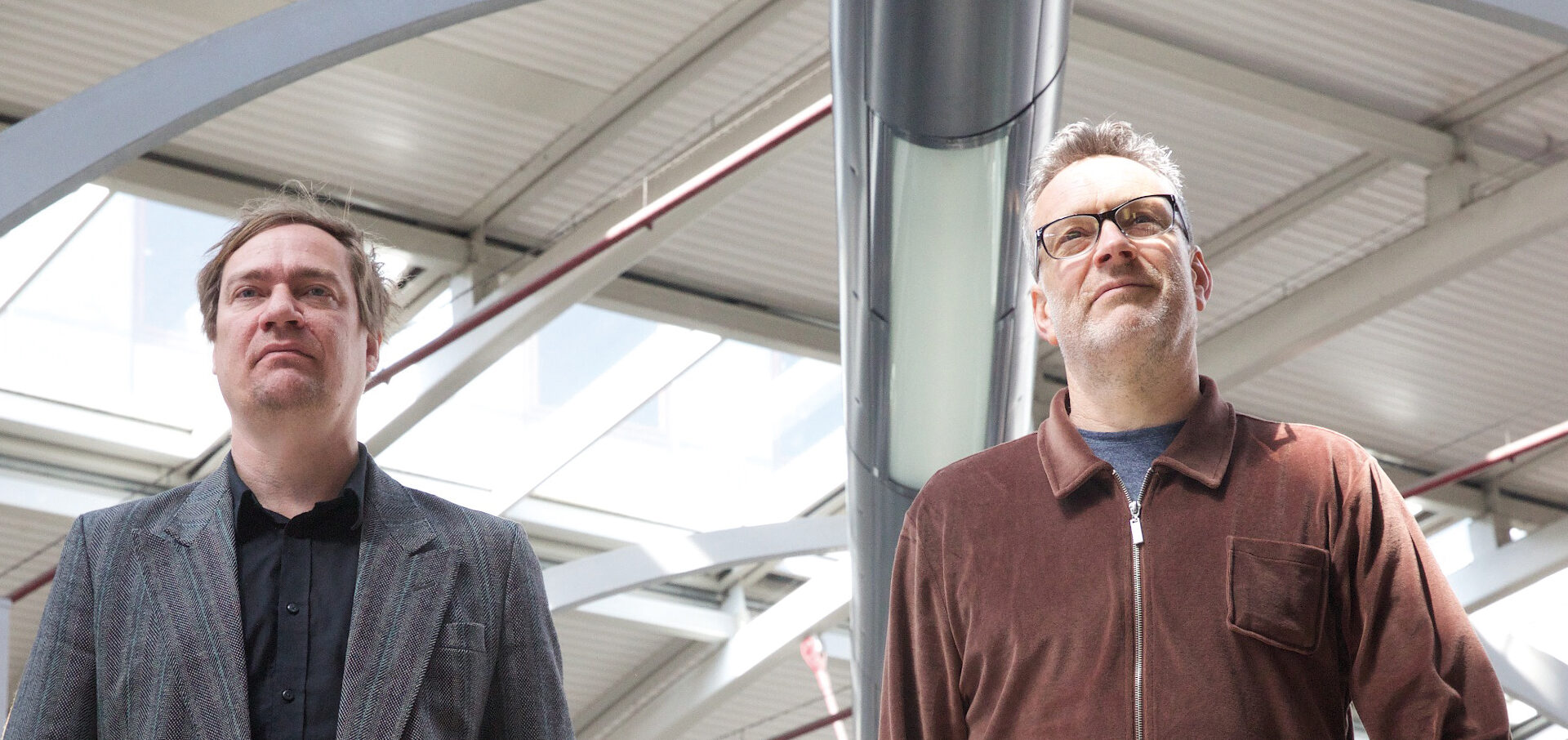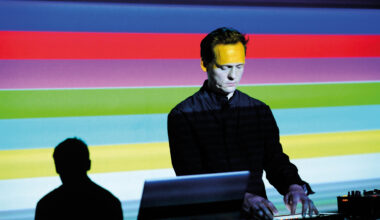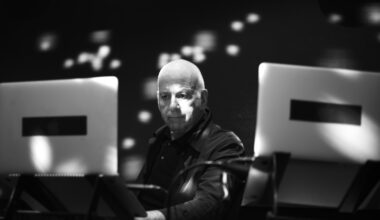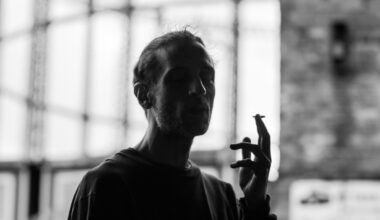Working remotely with little discussion of the music being passed between them, Fader aren’t your usual electronic outfit. You might recognise the pair of them too…
The many wonderful things that Soulwax have brought us in their time have been pretty thoroughly documented. But there’s one thing they are, admittedly indirectly, responsible for that has remained unreported until now. When the Belgian three-piece offered a healthy wad of cash to producer Benge in return for the use of his Hoxton studio, home to his highly impressive collection of antique synthesisers, they set in motion a chain of events that has culminated in one of this year’s most interesting and exciting albums.
Fader is a collaboration between Benge, producer of esoteric electronics also known for his role alongside John Foxx and membership of Wrangler, and Blancmange’s Neil Arthur. Their album, ‘First Light’, fizzes and pulsates with life from the moment you press play. It’s raw and spontaneous, with the same gritty, hands-on feel of the original synthpop of early Human League or even Joy Division’s primal experiments with electronics on ‘Closer’.
Neil Arthur’s lyrical contributions, meanwhile, weld the simple grooves and deft hooks to an equally compelling, intimate and poetic narrative. Delivered in his unrestrained and unsoftened Lancashire tones (he may have spent 30 years of his life living in south London, but “I never became a cockney did I,” he laughs), the songs tackle everything from the intoxicant-induced hallucinations (‘3D Carpets’) to the sun setting on inner city Liverpool (‘Liverpool Brick’).
The concept of the city looms large in the consciousness of the record, which is ironic, or perhaps more understandable, given that these two former London residents now reside in relatively isolated rural locations.
Neil and his family have lived in Gloucestershire for the past decade, while Benge bought a house in Bodmin Moor four years ago. As a result, most of the LP was made remotely, swapping files over the internet. Indeed, as the pair prepare to tell all about the album’s creation over cappuccinos in an Italian cafe in Farringdon, it transpires this is only the third time they’ve ever met.
The roots of ‘First Light’ lie in Los Angeles, where Benge spent a couple of months while he vacated his studio for Soulwax.
“I got quite a lot of cash for that and I spent it all setting up a little studio in LA,” he says. “The Soulwax guys are really into analogue and modular synths and my studio was full of them. They were like, ‘We will give you X amount of cash and you can go off to LA and enjoy yourself’. We’ve remained friends ever since and after using my place they bought their own studio, and filled it with old synths.”
Although he says he headed to California for a change of lifestyle, he was soon scouring eBay for basic equipment to set up a studio in his temporary holiday home up in the Hollywood Hills. When it came to writing, the city had an immediate effect.
“I work in a few different genres within the electronic music field,” says Benge. “I do a fair bit of abstract and ambient stuff, so I really wanted to do some song-based music. The idea was to do something simple, but edgy, to fit in with the idea of living in a new city.”
The relatively retro studio set-up also resulted in music that chimed perfectly with the image of the city that Benge already had in his head, formed from years of exposure to Hollywood films.
“My idea of LA was totally from the movies,” he says, “80s cop movies, or horror or sci-fi stuff. So I had those references of what LA should be like in my head and when I got there it looked exactly like it did in my mind! The soundtrack to that was like this early 80s drum machines and minimal synth stuff…”
Add to that the influence of an underground radio station that fed Benge with a regular diet of minimal electronica interspersed with obscure Tangerine Dream tracks from the 70s, and the musical cast in this new little world that he’d created was well and truly set.
Once back home in the UK, the tracks were put to one side as he got on with other projects. But Benge kept returning to them and felt the tracks, with their song-like quality, needed a little something else. It was his manager Steve Malins who suggested that another of his charges, Blancmange’s Neil Arthur, might make the perfect vocalist to complete the project.
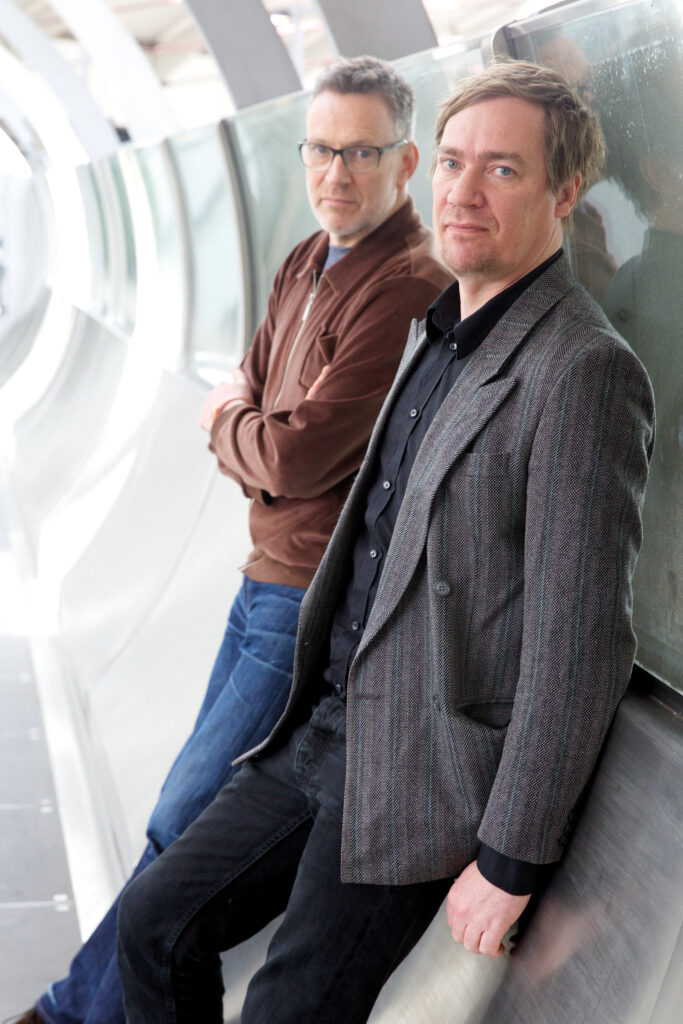
But rather than book out a studio for months to collaborate, which would seem to be the most convenient and fruitful way forward, the idea seemed to be for Neil to react to the music Benge had made and come up with his own vocal input away from too much discussion and theorising, at home in Gloucestershire.
The pair even let Malins act as what Neil calls the “conduit”, passing sound files between them, meaning the communication was almost purely musical rather than conversational.
“It was interesting,” says Neil of the process, which was a first for him in terms of writing a complete album.
“What was nice was the information that Benge sent to me, and I can’t completely explain it, but I seemed to understand it. I was like, ‘Oh, I know what I want to do here’. I felt like I was in the song, I didn’t need a detailed conversation about it. In fact it might well have hindered the record had we discussed this or discussed that. It really was absolute freedom with every song.”
Benge was amazed that the whole concept of urban isolation, which he hadn’t discussed, was instinctively reflected in the lyrics that Neil laid down.
“We hadn’t talked about that,” he says, “but a lot of the songs seemed to have that lyrical theme in there as well. The idea of solitude and this almost isolated feeling. I mean the lyrics are very English, there are no references to America, but the feel is still there somehow, which is really interesting.”
It was only after the whole album had been assembled that Neil and Benge actually sat down and worked together for the final tweaks in the latter’s studio. Neither of them, however, see any contradiction between the rural settings of their respective homes and the lifestyles that go with them, and the album’s tense, urban feel.
“I’ve spent most of my life living in a city,” states Neil. “I go to cities a lot.”
He relates as an example the story of ‘Liverpool Brick’, penned while protecting the family car from the predatory instincts of a “lovely Rita, meter maid”. Keen not to give too much of the mystery of the song away (“It will spoil it for anyone listening to it, I think people should make their own minds up,” he insists), he explains that the moment, watching the sun going down on an everyday brick wall, was enough to spark the genesis of the lyric.
Having spent 35 years living in London, Neil believes a rural location simply gives him more space to think.
“I can’t see it’s had an effect on what I write about,” he says, “but maybe being in the countryside gives me a chance to reflect a bit more than when I lived in Brixton. In any case, the lyrics aren’t really to do with being in one specific location, they’re more about a certain state of mind. I come to London all the time, we have friends and relatives here and they come down to see us and bring their stories of the city!”
That said, both of them are noticing the changing landscape of London. Every time they visit, they agree, it seems busier. There are more beards in Brixton, Neil observes, where once it was the preserve of “mass murderers and geography teachers”. This gains a laugh from Benge as he himself admits he was formerly the owner of a prodigious chin growth himself.
“As soon as they came back into fashion I shaved it off,” laughs Benge. Likewise, there’s a touch of irony in Neil’s stated shock at the sudden popularity of fitness wear in the city. He remains a keen cyclist, and although he reckons he might not have the nerve to cycle in London any more, the Gloucestershire countryside gives him ample opportunity to hit the open road and think.
“I used to do a lot of running, distance running, but now my knees are knackered from that and playing football,” he says, “So now cycling is OK for me. Frankly, walking is a bit of a struggle at times, but cycling doesn’t seem to bother me too much.”
Get the print magazine bundled with limited edition, exclusive vinyl releases

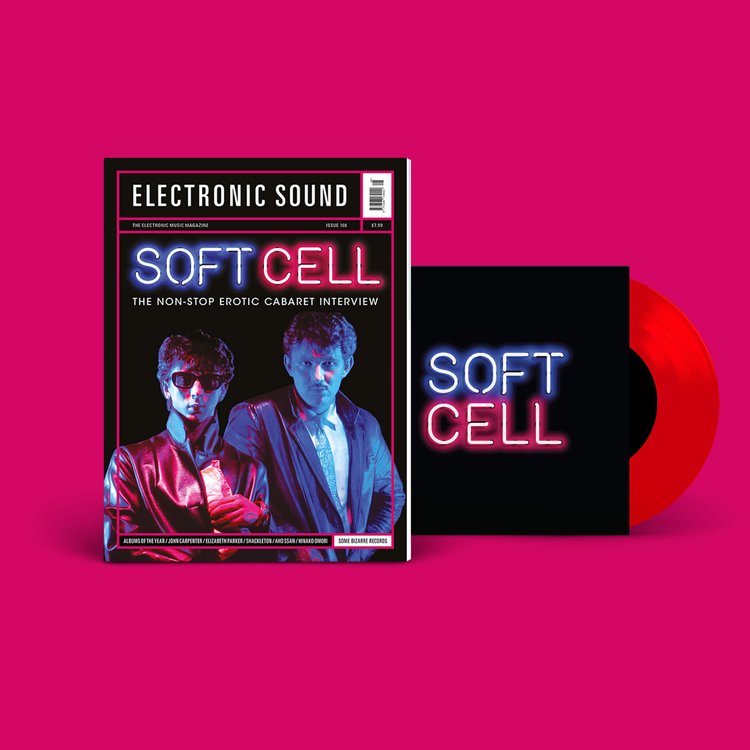
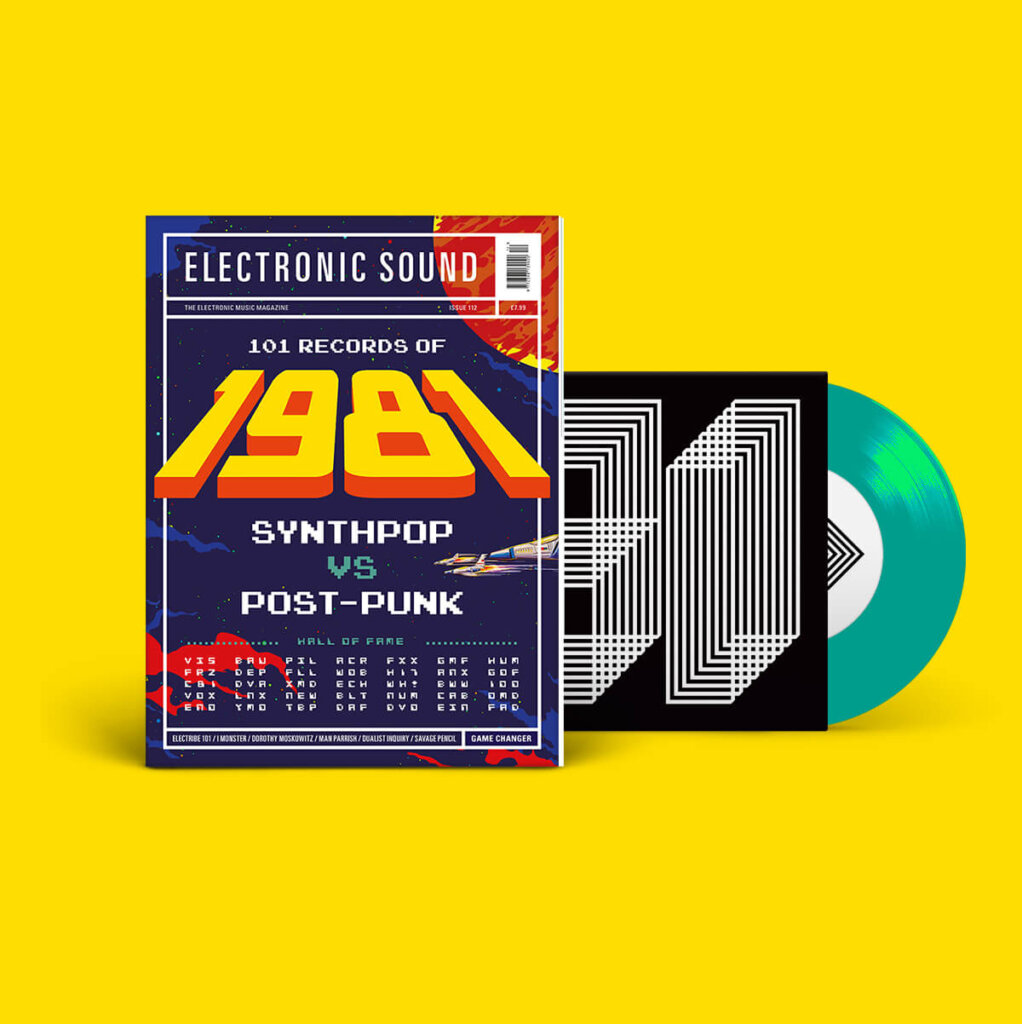
Indeed, a fellow footballing friend from Stroud (a chap named Dennis, now 75 but once a professional with Aston Villa) may have partially inspired the album’s distinctive inner sleeve artwork, which uses “concrete poetry” to create pictures of what, in this case, the lyrics describe. According to Dennis, it apparently became a bit of a movement in Stroud, as Neil confirmed the more he researched. Further analogue gear, this time an old fashioned typewriter, was required to bash the poems out.
“I still have the bruises to prove it,” laughs Benge.
With both men coming from art school backgrounds, Benge was in the year below Damien Hirst and the YBA’s at Goldsmiths, and Neil studied at Harrow before giving up his job as a graphic designer in Southwark when Blancmange took off, it’s perhaps not surprising that the sleeve was deliberated over and sent back and forth countless times before both were happy with the result. Showing a tiny crack of light appearing through a doorway, the sleeve, they joke, might possibly have taken longer to get right than the music itself.
“That’s the problem with minimalism,” says Benge. “Everything makes a difference when you get down to that level.”
“Simple is very difficult,” offers Neil, with only a hint of a smile on his lips.
‘First Light’ is released by Blanc Check
